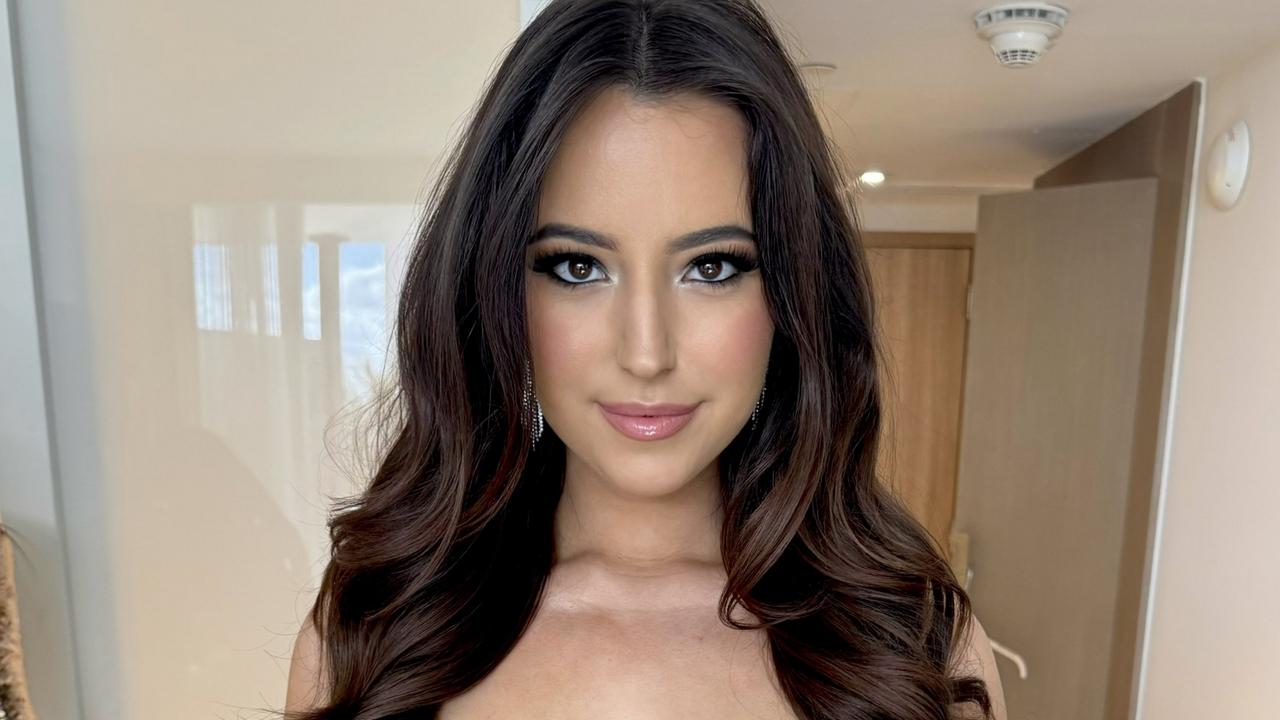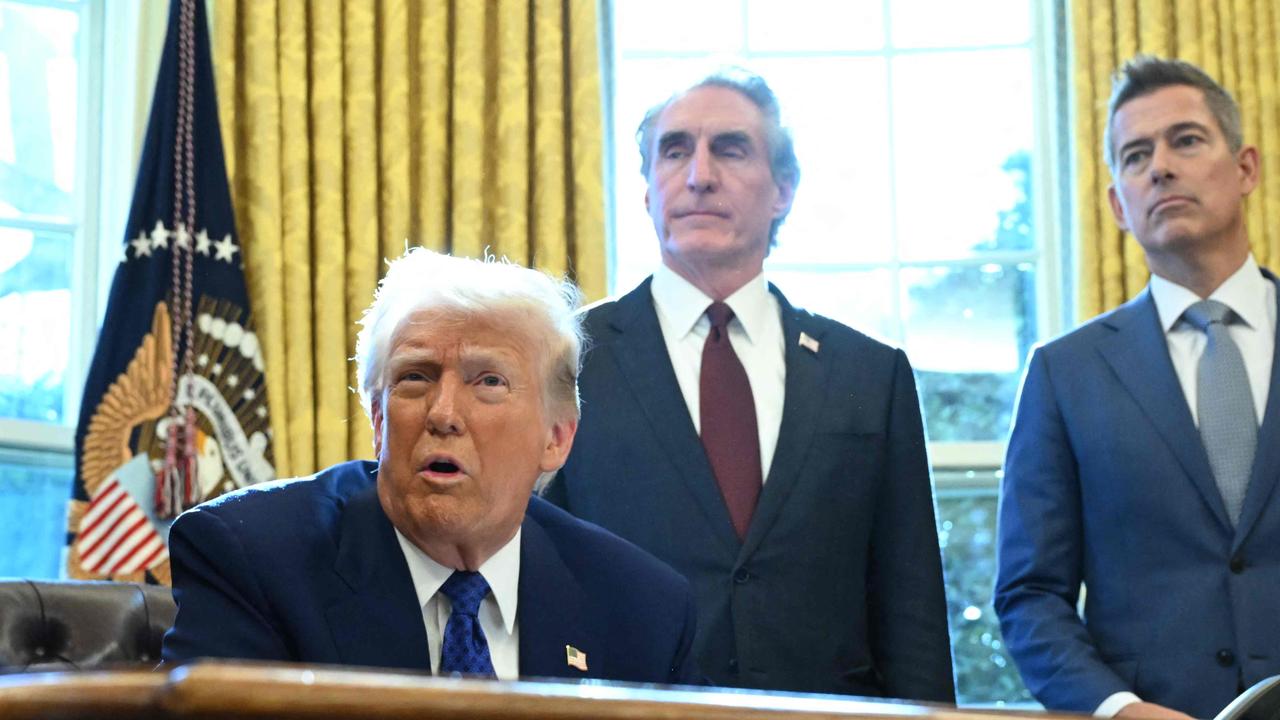‘New sheriff in town’: US slams Europe
JD Vance has launched a withering attack on Europe stunning attendees at the Munich Security Conference who called the speech “unacceptable”.
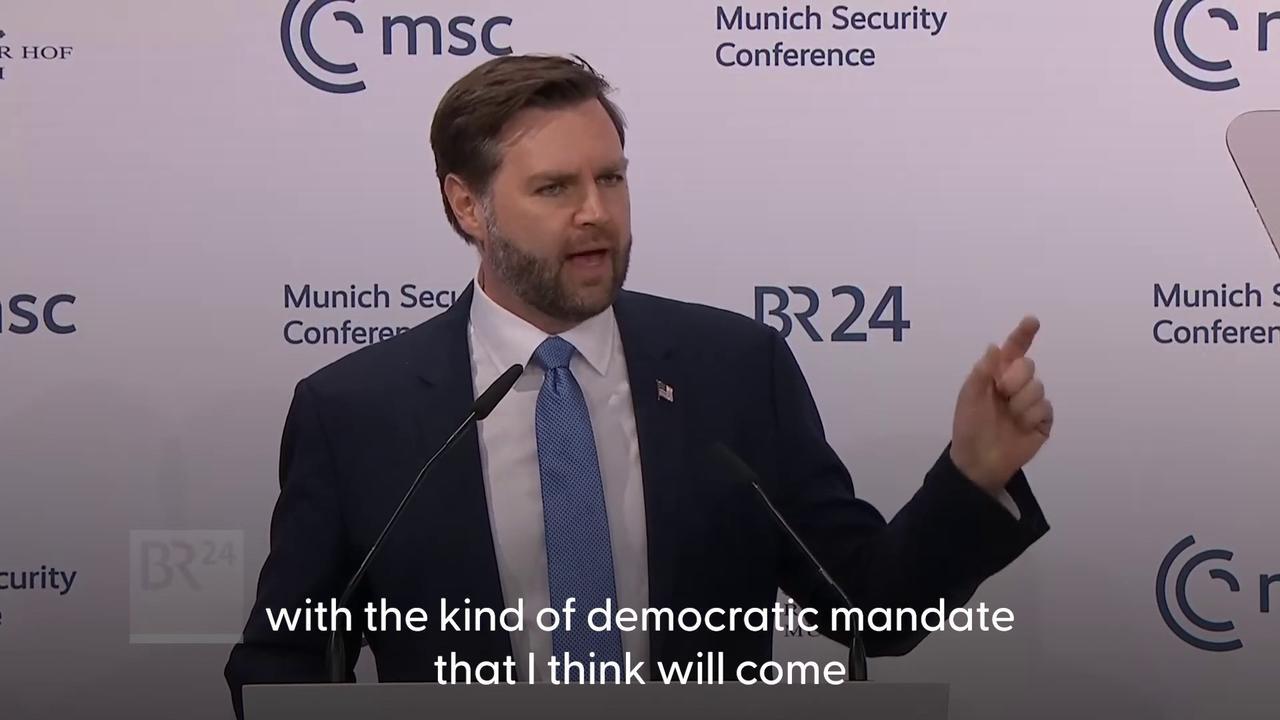
United States
Don't miss out on the headlines from United States. Followed categories will be added to My News.
US Vice President JD Vance has launched a withering attack against European policies on immigration, populist parties and free speech, echoing US President Donald Trump whom he called Washington’s “new sheriff in town”.
Mr Vance’s speech — which focused on key themes of Mr Trump’s MAGA campaign — was a combative broadside at the Munich Security Conference at a time of deep transatlantic discord over Ukraine, defence, trade and other issues.
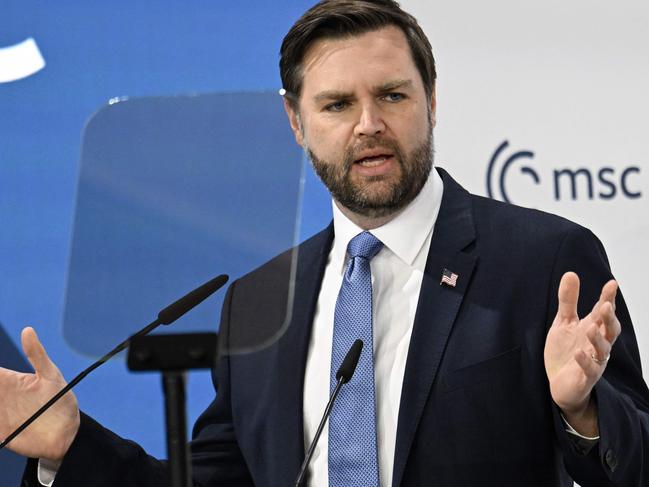
Mr Vance stressed that Europe must “step up” in managing its own security, a key bone of contention. But he mostly lambasted the EU’s members on culture war issues.
“There is a new sheriff in town under Donald Trump’s leadership,” said Mr Vance in a speech that stunned the room, and was later condemned as “unacceptable” by German Defence Minister Boris Pistorius.
“We may disagree with your views, but we will fight to defend your right to offer it in the public square,” said Mr Vance. “Agree or disagree.”
Mr Vance slammed EU “commissars” for stifling free expression and charged that “across Europe, free speech, I fear, is in retreat”.
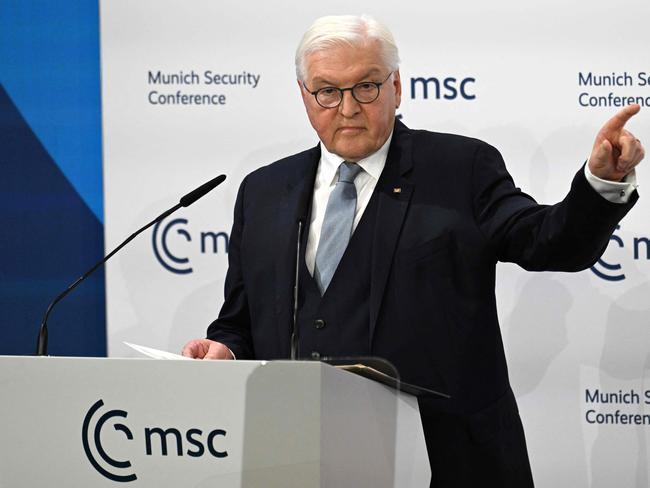
German President Frank-Walter Steinmeier had earlier made clear that what had been Berlin’s most important diplomatic relationship had sharply deteriorated since Mr Trump returned to the White House.
“The new American administration has a very different world view to ours,” Mr Steinmeier said. “One that has no regard for established rules, partnership and established trust.”
The German head of state urged European leaders to keep calm in the face of a blizzard of disruptive policy announcements from Washington.
“We must not freeze in fear, or as the English saying goes: Let’s not be a deer caught in the headlights.”
Mr Vance, undeterred, in his later speech urged European countries, including conference host Germany, which faces elections on February 23, to “change course” on immigration.
FOLLOW UPDATES BELOW:
AUSTRALIA SPARED IN TRUMP’S LATEST TARIFF BLITZ
Australia is set to avoid the worst of Donald Trump’s latest and harshest tariffs, although the GST and the Albanese government’s plan to force tech giants to pay for news could still drag us into the US President’s sweeping trade crackdown.
Mr Trump on Thursday (local time) vowed to enforce reciprocal tariffs on all countries, taxing imported goods at the same rate US exports are hit overseas, in a move that sparked fresh fears of a global trade war.
“Today is the big one,” he said of his proposal that would shatter decades-long trade norms.
Because virtually all tariffs between America and Australia were removed in a free-trade agreement struck in 2005 – one of only 20 deals signed by the US – the President’s order to draw up the tariffs over the next six weeks is unlikely to embroil Australian products.
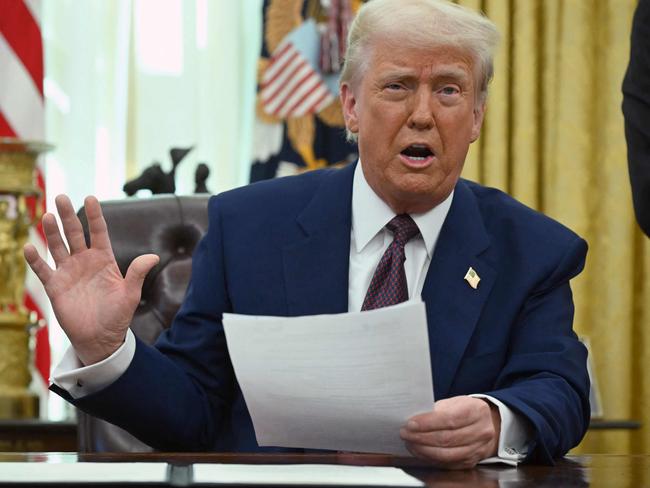
But the order also threatened retaliation for “unfair, discriminatory or extraterritorial taxes imposed by our trading partners on United States businesses, workers, and consumers”, with Europe’s Value Added Tax specifically in the President’s sights.
As a consumption tax, the GST could similarly be targeted by the Trump administration.
The White House also called out Canada and France’s digital services taxes which reaped hundreds of millions of dollars from American companies, a threat which could extend to the Albanese government’s media bargaining incentive that would impose heavy financial penalties on US-based tech giants if they did not negotiate deals with news companies.
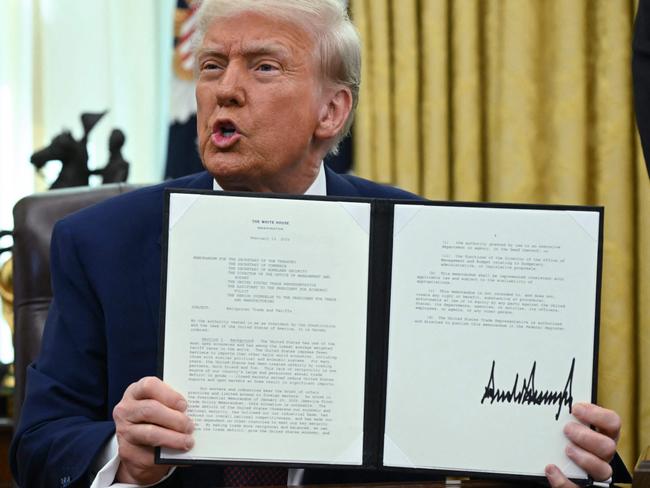
“We want a level playing field,” Mr Trump said, as his officials suggested his plan would at least temporarily replace his threat of a universal tariff on all imports of at least 10 per cent.
The announcement was the latest in the President’s barrage of tariff proposals, including a 25 per cent duty on steel and aluminium imports to the US that is due to kick in next month.
As Mr Trump considered whether to grant Anthony Albanese’s request for an exemption on the metal tariffs, the Prime Minister visited steelworkers in New South Wales and told them: “We have your back.”
“The US has a trade surplus with Australia. We have zero tariffs on any US goods into Australia, and Australian steel is making a positive difference to the US economy,” Mr Albanese said.
“It is in both Australia and the United States’ interest to have economic co-operation, and that’s what I am endeavouring to achieve.”
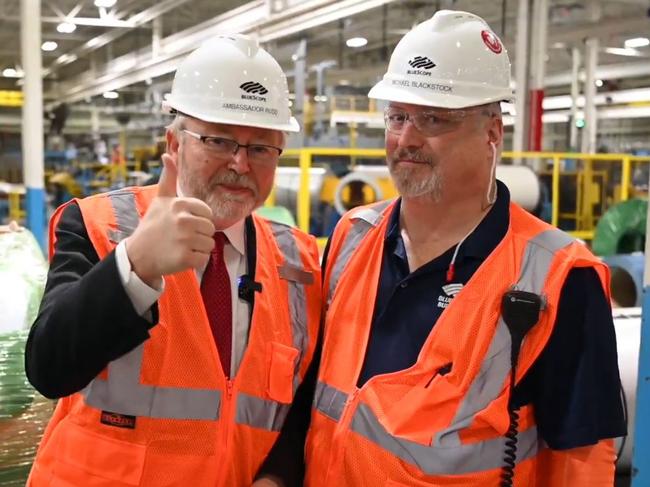
Australia’s ambassador to the US Kevin Rudd also visited a Tennessee steel factory owned by Australian giant BlueScope, where he spruiked its $5bn investment into the US economy.
“Good for Australia. Good for America,” he said.
But Opposition Leader Peter Dutton, while criticising Mr Trump’s tariffs, said Mr Albanese had “dropped the ball” in protecting Australia’s interests.
“He’s just not up to the task of negotiating these big deals. There is a deal, I’m sure, to be done with the United States and there is a lot Australia has to offer,” he said.
CANADA ‘SERIOUS CONTENDER’ TO BE US STATE: TRUMP
President Trump said that Canada is a “serious contender” to become the 51st state, adding it needs US “protection.”
He has repeatedly floated the idea of Canada joining the Union — even mockingly referring to outgoing Prime Minister Justin Trudeau as “governor” — and revisited the topic while signing a memorandum ordering reciprocal tariffs on countries around the world.
“Look, the people would pay much less tax than they’re paying right now, they’d have perfect military protection,” the president said, The New York Post reported.
“You have Russian ships, you have China ships, you have Chinese ships. You have lot of ships out there,” he added.
“People are in danger. This is a different world today. It’s a different world, but they need our protection.”
RFK JR CONFIRMED AMID CONTROVERSIAL VIEWS
The Republican controlled US Senate approved Robert F. Kennedy Jr. as health secretary Thursday, disregarding alarm from the medical community over his history of promoting vaccine misinformation and denying scientific facts.
Known widely as “RFK Jr,” the 71-year-old nephew of the late President John F. Kennedy secured the nomination by a vote of 52-48, becoming the latest contentious addition to President Donald Trump’s cabinet.
Former Senate Majority leader Mitch McConnell voted no, standing as the sole Republican dissenter.
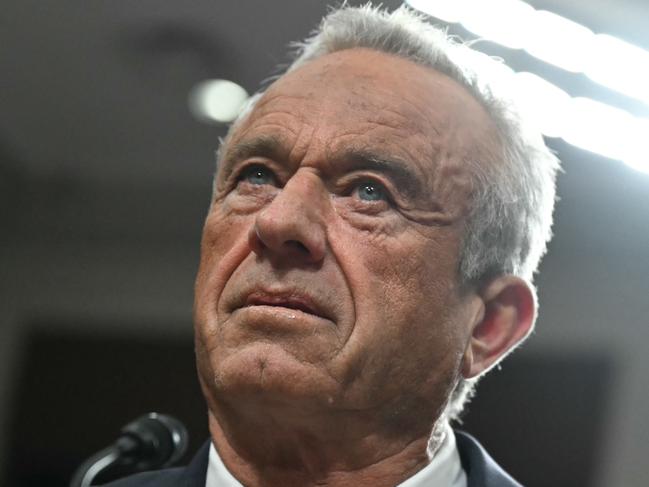
Kennedy now leads a department overseeing more than 80,000 employees and a $1.7 trillion (A$2.7 trillion) budget, just as scientists warn of the growing threat of bird flu triggering a human pandemic, while declining vaccination rates mean once vanquished childhood diseases are re-emerging.
He was previously an environmental lawyer who sued chemical giant Monsanto and accused climate-change deniers of being traitors.
But he has spent much of the past two decades touting conspiracy theories from linking childhood vaccines to autism and suggesting the Covid virus spared Ashkenazi Jews and Chinese people, to casting doubt on whether germs cause infectious diseases.
Yet it was his shift toward Republican positions — particularly on abortion, which he once supported but has since signalled a willingness to further restrict — that ultimately won over conservative politicians wary of his past.
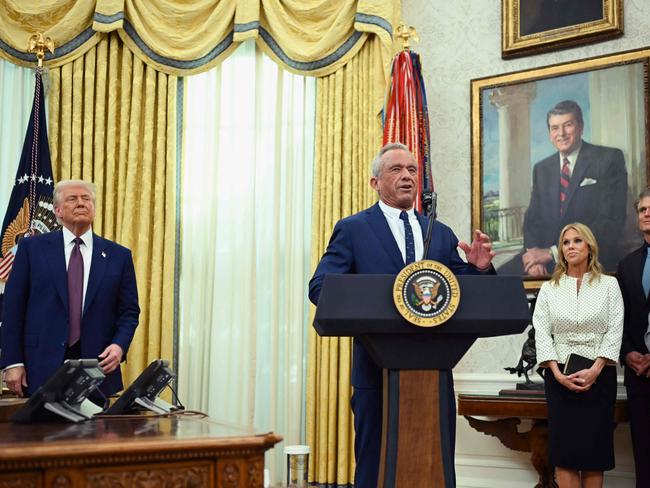
During heated confirmation hearings, Democrats pointed to what they called glaring conflicts of interest in Kennedy’s financial filings: lucrative consulting fees from law firms suing pharmaceutical companies.
They also called attention to allegations of sexual misconduct and his claims linking school shootings to antidepressants.
Last year, 77 Nobel prize winners penned an open letter to the Senate opposing his nomination, warning that his confirmation could put public health “in jeopardy.” He was also widely opposed by his own family, with his cousin Caroline Kennedy, a former diplomat, recently accusing him of being a “predator” who led younger relatives down the path of drug addiction.
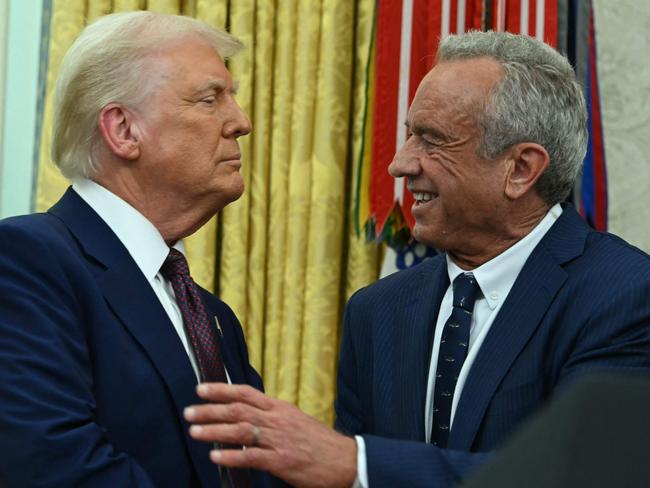
“He’s a frightening man, a dangerous man, and I think he’ll do harm,” Paul Offit, a leading vaccine expert at Children’s Hospital of Philadelphia told AFP. “It is a disaster waiting to happen, and it will happen.” Critics have accused Republican senators of looking the other way. “They are choosing to pretend like it is in any way believable that RFK Jr. won’t use his new power to do exactly the thing he has been trying to do for decades — undermine vaccines,” said Democratic Senator Patty Murray.
Nothing prevents Kennedy from dismissing the Centers for Disease Control and Prevention’s (CDC) vaccine advisory committee, which determines which vaccines must be covered by insurance, she added.
Kennedy has also vowed to gut the Food and Drug Administration and suspend research on infectious diseases.
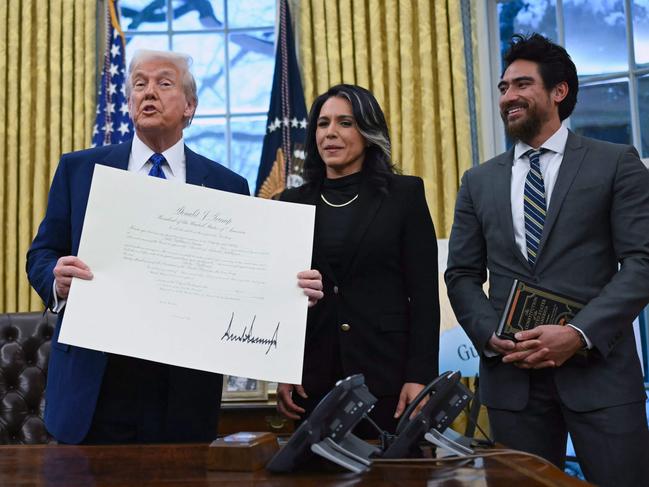
The Senate has approved all Mr Trump’s cabinet picks to date.
Just one day prior, politicians gave the green light to Tulsi Gabbard as Mr Trump’s pick to oversee US intelligence services, despite criticism over her limited background and past support for adversarial nations such as Russia and Syria.
Gabbard’s confirmation is viewed as yet another testament to Mr Trump’s firm grip on his party, following a slate of controversial cabinet nominees — among them a defence secretary accused of sexual assault and an FBI chief allegedly driven by political vendettas.
– with AFP
More Coverage
Originally published as ‘New sheriff in town’: US slams Europe



